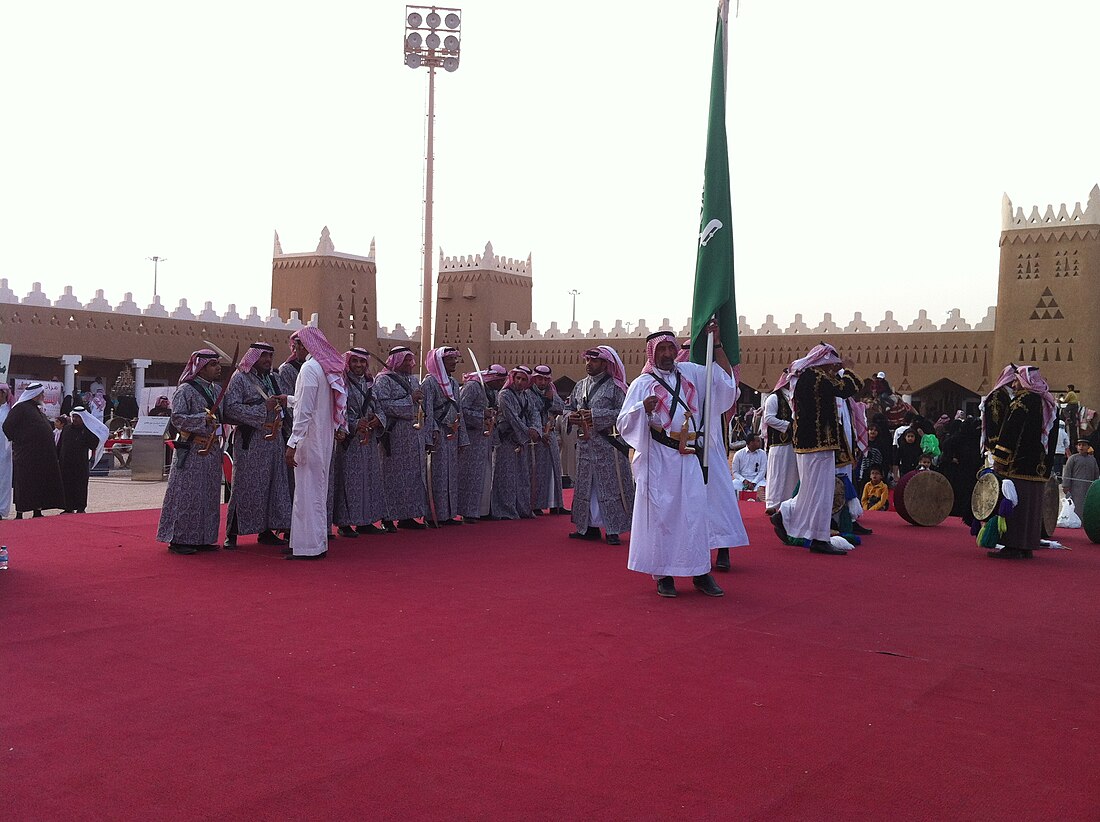Top Qs
Timeline
Chat
Perspective
Ardah
National dance of Arabs From Wikipedia, the free encyclopedia
Remove ads
Ardah (Arabic: العرضة / ALA-LC: al-‘arḍah) is a type of folkloric group dance in the Arabian Peninsula, in most countries located in the Gulf Cooperation Council. The dance is performed with two rows of men opposite of one another, each of whom may or may not be wielding a sword or cane, and is accompanied by drums and spoken poetry.[1]

You can help expand this article with text translated from the corresponding article in Arabic. Click [show] for important translation instructions.
|
You can help expand this article with text translated from the corresponding article in Simple English. Click [show] for important translation instructions.
|
Originally, the ardah was performed only by males of tribes of the Arabian Peninsula before going to war, but nowadays it is done at celebrations, weddings, and national and cultural events by males of all tribes. There currently exists various types of ardah across the Arabian Peninsula.[1]
It was inscribed on UNESCO's Intangible Cultural Heritage of Humanity in 2015 as Alardah Alnajdiyah.[2]
Remove ads
Variations
The term ardah (عَرْضَة) is thought to derive from the Arabic verb ard (عَرَضَ) meaning 'to show' or 'to parade'. It was so named because its purpose was to publicly display the fighting strength of a tribe and boost morale before an armed engagement.[1] Although there are regional variations of the particular rendition of ardah, the purpose it serves is nearly identical throughout the Arabian Peninsula.[1]
Nejdi ardah
Najdi ardah is the most common variant of ardah in Saudi Arabia. It is also the most practiced and highly televised male folkloric dance in the entire country. The Saudi government changed its name to 'Saudi ardah' in the 21st century. However, there are numerous variations of ardah distinct from Najdi ardah throughout the country, notably in the regions of Najran, Asir and Jizan.[3]
Remove ads
See also
References
External links
Wikiwand - on
Seamless Wikipedia browsing. On steroids.
Remove ads

